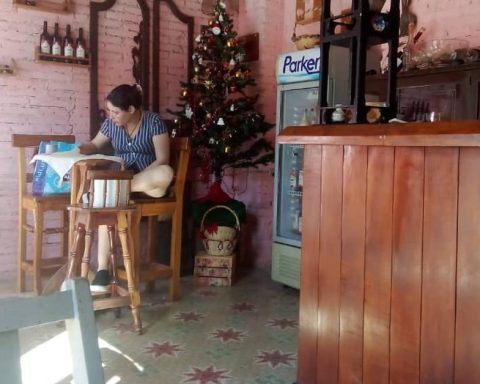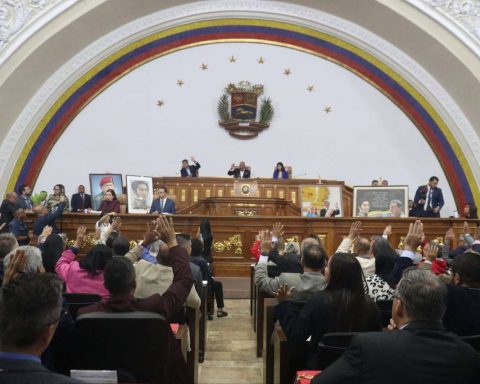The people are the owners of the PJF and we are here to serve them: Lenia Batres and Loretta Ortiz
Gustavo Castillo and Cesar Arellano
The newspaper La Jornada
Friday, September 6, 2024, p. 5
Democracy is the gateway to solving the major problems of justice and corruption that exist in the Federal Judicial Branch (PJF), which is not the property of judges and ministers; the owner is the people.
said Minister Lenia Batres Guadarrama, before thousands of students, citizens and members of social organizations who demonstrated in support of the reform to the PJF in front of the Supreme Court of Justice of the Nation (SCJN).
In turn, her counterpart Loretta Ortiz pledged to look after the rights of the people, always
in an event in which attendees filled the streets surrounding the SCJN building.
Both participated in the closing of the protest that lasted more than an hour and a half, demanding that the reform to the PJF be approved and that the president of the Court, Norma Piña, resign.
In her speech, Lenia Batres pointed out that the amendment is a national outcry: We are living in a historic moment, an effort of transformation, in which for the first time the origin, composition and purposes of the Judicial Branch in Mexico are being questioned.
.
He expressed satisfaction that young people are participating in this movement to support constitutional transformation, and recalled those who have been fighting for decades for changes in the country: in 1968, the dirty war; the university movements from 1986 to 1990, in 1999, and #YoSoy132, among others. They, and the youth of today, are those who “have forged and allowed this peaceful revolution to come about and this transformative revolution to materialize.
We see a Judiciary with strong racist, classist and sexist biases, a lot of partiality and major acts of corruption. That is why this reform is urgent.
He argued that support for this constitutional amendment – which if approved would require the popular election of judges, magistrates and ministers – has also been expressed in Congress so that progress can be made in terms of social justice, and “that judges are capable of resolving not only individual controversies, but also criteria and rulings that help with the right to food, social rights, which should also be the subject of the courts and the SCJN.”
We need sensitive judges, so that people can raise these problems in the courts, so that access to justice is no longer limited to a small part of our society, and not limited to those who can afford to pay lawyers and hold trials in the various instances. To do this, we need a Judiciary that is subject to controls, which includes judges, magistrates and ministers, so that there is no corruption; that applies sanctions, because, he added, it is necessary that there is no impunity.
Batres stressed that they must be subject to financial control and that there must be a power such as the Legislative branch, which can audit the Judiciary, because this is not currently done. We also need economic control, limiting income and privileges, because in our country there are rich judges and poor people; it is not fair.
Meanwhile, Loretta Ortiz expressed her appreciation for the distinction of President Andrés Manuel López Obrador in proposing her as a member of the Court; she recalled that all her votes have been in favor of the people: the one for the electrical reform and for the rights of women and children
.
She said that her actions “are always subject to the will of the people, to you. We are your servants –she said, including Batres–; we are here to serve the people and that is the reason for our role and our existence. We will always look out for the rights of the people.”
















